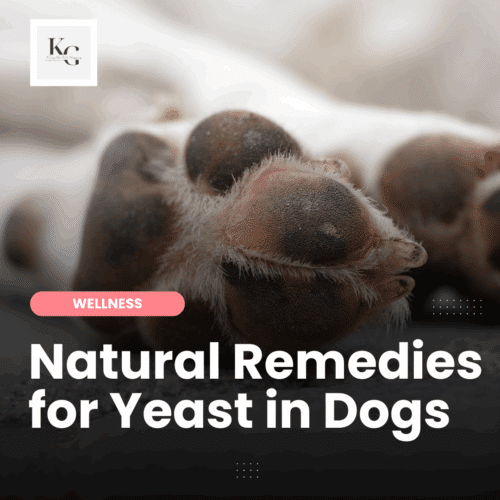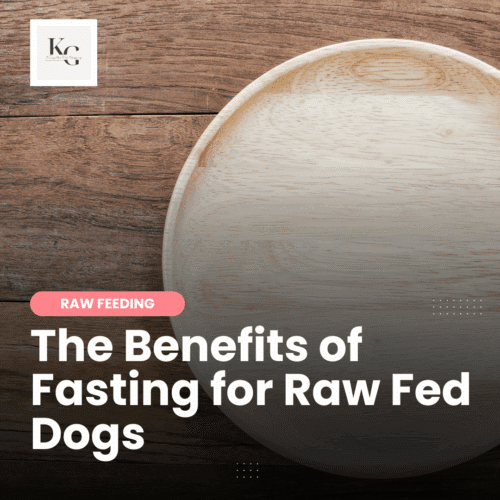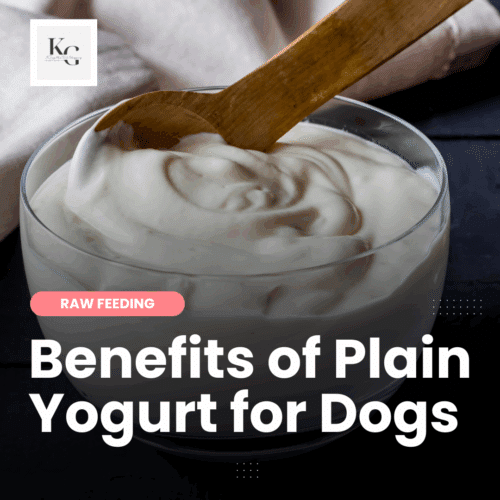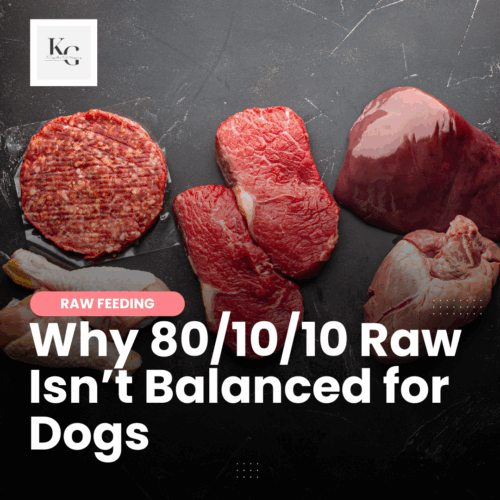Keep the Tail Wagging is supported by pet parents. I occasionally earn a commission (at no additional cost to you) when you click through an affiliate link to one of my favorite products. Thank you for your support. Read More
Embark combines breed identification, genetic health screening, physical trait analysis, and canine relative connection in a single comprehensive test. Developed by vets and backed by Cornell University, it uses a high-density SNP microarray processed in an ISO/CLIA-certified lab, resulting in over 99% genotype accuracy on mutation tests and strong reliability on breed ancestry thanks to multiple probes per marker.
I invest in an Embark Vet kit for each of my dogs to satisfy my curiosity about their breed mix and to learn more about them from nose to tail. These kits do not replace a veterinarian or dog trainer; rather, the results offer us detailed information about our dogs that we wouldn't have known.
Benefits of Embark Vet DNA Tests
- Breed Identification – Detects 350+ breeds, types, village dogs, wolves, and coyotes, with thorough ancestry and family trees tracing back to great-grandparents.
- Genetic Health Screening – Tests 270+ health risks, covering conditions like progressive retinal atrophy and drug sensitivities, giving early warning for proactive veterinary care.
- Physical Traits Analysis – Reports on 55+ traits such as coat color, shedding, and predicted adult weight DNA Weekly+11.
- Relative Finder – The world’s first canine relative finder shows closely related dogs in Embark’s database, 90–94% of dogs find at least one cousin/relative.
- Allergy Risk Score – Unique 0–100% scores for environmental, food, contact, and flea allergies; paired with management tips to prepare for possible sensitivities.
- Age Insights – The standalone Dog Age Test assesses your pup’s DNA methylation to estimate chronological age and “birthday.”
- Actionable Insights & Vet Support – Automatically sends results to your vet and provides clinical interpretation for ALT enzyme variants, drug sensitivities, and other aspects, with direct input from veterinarians.
- Training Support – Knowing breed mix and traits helps tailor exercise and training regimens. Customers report improved training focus once they learned their dog’s breed strengths, such as scent work for working-breed mixes.
Shortcomings of Embark Vet DNA Tests
Many people are skeptical about the accuracy of DNA testing kits. And, to be honest, Embark Vet and other DNA tests on the market do have their limitations.
- Ancestry for deep mixed breeds: Accuracy declines with very mixed or village dogs beyond 2nd-generation mixes.
- Linkage-based tests: Some conditions are inferred by proxy genetic markers (LD), not direct mutation, and noted transparently by Embark Vet.
- Interpretation required: Genetic predispositions aren’t guarantees, tests aren’t diagnostic, and vets should interpret results in context.
- Privacy & research use: Embark may use opt‑out genetic data for research; some vets caution pet parents due to the lack of regulation in pet DNA.
Product Features Summary
| Feature | What It Covers |
|---|---|
| Breed ID | 350+ breeds, village dogs, wolf/coyote ancestry |
| Genetic Health | 270+ conditions; includes drug sensitivities |
| Physical Traits | 55+ traits, including coat and weight indicators |
| Relative Finder | Connects you with genetic relatives in database |
| Allergy Risk Score | Four allergy types (environmental, food, contact, flea) |
| Age Test | DNA methylation-based age estimation |
| Actionable Insights | Vet-friendly reports, clinical trait interpretation |
| Training Support | Personalized care and exercise guidance based on breed |
How the Embark DNA Test Works
1. Ordering the Kit
- You purchase the Embark DNA test online.
- The kit arrives in the mail and includes:
- A swab for collecting your dog’s DNA
- Instructions
- A prepaid return envelope or box
Tip: Register your kit before collecting your dog's DNA sample to avoid forgetting, which could delay your test results or prevent you from receiving them altogether.
2. Collecting Your Dog’s DNA Sample
- Embark uses a cheek (buccal) swab:
- Gently rub the swab along the inside of your dog’s cheek for 30–60 seconds.
- The goal is to collect saliva and cheek cells; don’t just touch the teeth or tongue.
- Let the swab air dry for a few minutes.
- Seal the sample in the provided packaging.
Tip: Wait at least 30 minutes after your dog eats or drinks before swabbing to avoid contamination.
3. Sending the Sample to Embark’s Lab
- Place the dried swab into the prepaid mailer.
- Drop it off at the post office or schedule a pickup.
DNA Extraction and Analysis
Once your dog’s sample arrives at Embark’s certified lab:
- DNA extraction:
- Lab technicians isolate DNA from the cheek cells on your dog’s swab.
- DNA amplification and scanning:
- Embark uses a high-density SNP microarray, testing over 200,000 genetic markers across your dog’s genome.
- These markers include regions tied to breed ancestry, physical traits, and known genetic health conditions.
- Data analysis:
- Sophisticated algorithms compare your dog’s DNA to Embark’s reference database of breeds and genetic variants.
- Health screening identifies any mutations linked to diseases.
- The system also searches for genetic matches to other dogs tested through Embark (the Relative Finder feature).
5. Getting Your Results
- Timeline: Results usually arrive in 2–4 weeks after the lab receives your dog’s sample.
- You’ll get an email notification when results are ready.
- You log into your Embark account (an app isn't currently available) to view:
- Breed breakdown
- Genetic health risks
- Physical traits predictions
- Potential relatives
- Additional insights like allergy risk and age estimation (depending on the kit)
Reports are interactive, easy to read, and can be downloaded or shared directly with your veterinarian.
Accuracy & Lab Rigor
I trust Embark Vet due to the company's quality control standards and commitment to accuracy.
- SNP microarray tech: Industry-standard with multiple probes per marker.
- Lab controls: Barcoded, robotic handling, ISO/CLIA accreditation to prevent contamination.
- Peer recognition: Frequently noted as a top-tier pet DNA test, People magazine called it “best investment” for extensive coverage.
Other Embark Tests
- Breed ID Kit ($90–$129): Breed ancestry and Relative Finder only
- Breed + Health Kit (on sale for ~$118 from $199): Adds full health screening, traits, allergy scores (RECOMMENDED)
- Dog Age Test ($109–$159): Estimates biological age and birthday
- Gut Health Test ($115–$100 add-on): Microbiome imbalances to support gut wellness
- Breeder & Vet Panels: Including COI (inbreeding), carrier status, and breed-specific panels.
My Experience with Embark Vet
Embark offers perhaps the most robust combo of breed tracing, health screening, traits, allergy risk, age estimation, and family connections, all with vet-friendly delivery. While rare limitations exist (mixed-canine ancestry, proxy inference, privacy use), the accuracy and data depth make it invaluable for proactive dog care.
I test all of my dogs for the following reasons:
- To confirm the breed mix that the rescue organization or previous owner shared.
- To be notified about any potential health issues, drug resistance, and estimated adult weight.
- To connect with close relatives (parents and siblings) and learn more about their behavioral traits and health updates.
How Embark tests have been beneficial:
- Drug Resistance – Thanks to Embark Vet, I learned that many of my dogs were a mix of herding breeds, and several had drug resistance, which was information the veterinarian needed. This saved me money down the line because duplicating this test wasn't necessary.
- Disease Markers – The test results reveal various markers a dog may carry. This doesn't mean the dog will develop the disease, but the information provides valuable insights that help my veterinarian.
- Connecting with Relatives – Thanks to Embark Vet, I learned that one of my dogs' anxieties is common amongst her siblings. This has helped me adjust her training to manage stress levels and build her confidence.
- Confirm Breed Mix – One of my dogs came from a Goberian (Golden Retriever / Siberian Husky) breeder out of state. I'm his second owner and questioned his breed mix. The test confirmed that he is 50% English Golden Retriever and 50% Siberian Husky.
I've tried many DNA testing companies, and Embark Vet has been the most accurate brand, providing actionable results to pet parents.
Is the Embark Vet DNA & Health test worth it? If you're a conscientious pet owner, rescue organization, or breeder, it’s a powerful tool to understand your dog’s biology, risk factors, and training needs, and to partner effectively with your veterinarian.





